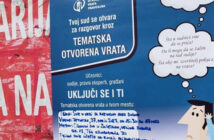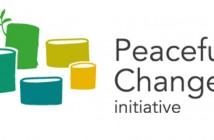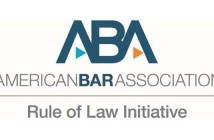Project title: A Nation-Wide Awareness Campaign on Self-Representation in Serbia
Duration: December 2017 to April 2018
Donor: The Multi Donor Trust Fund for Justice Sector Support in Serbia
About the project: Citizens are usually unaware of their rights and obligations and therefore have a justified fear in meeting with unknown judicial procedures to them, since the outcome can sometimes have a crucial impact on their lives. The unenviable economic situation and money insufficiency is an additional problem that arises. In order to facilitate them in such situations, the MDTF JSS has developed two guides in cooperation with the Lawyers’ Committee for Human Rights – YUCOM: „Self-Representation Guide“ and „A Guide – First Time in Court or at a Courthouse“, which teaches of the relevant problems related to the judicial procedures and the procedures before independent institutions in a simple and illustrative manner.
All citizens encounter the judicial system in one moment of their lives. Very often they are even forced to participate in such a proceeding regardless of what their own will is, simply because they have been subpoenaed. In all of this there is also additional fear, because the most often they neither have the knowledge or the experience, and they are therefore entering a field that is completely unknown for them. That refers not only to Acts and Laws, but also to the whole system of norms that are more likely to be unwritten, and that can only be comprehended by years of studying and experience. The purpose of the guides is to bring the judicial proceedings closer to citizens as much as possible, in a way that is comprehensible to them, by using a simplified and reduced language and terminology and all with the intent to make complicate terms and concepts easier for understanding and application. The publications give answers to the questions that citizens usually ask themselves even before they decide to go to court, related to, per example, legal expenses, writing lawsuits, statements, counter-statements and responses to lawsuits, as also hearings, evidences, submissions, access and insight to records, acceleration of the proceedings, judgments and legal remedies. Also, publications provide the answers on what appear to be trivial questions, as per example: „What to bring to court“, ”What to wear” and ”Where is the courtroom situated at?” etc.
Guides give many examples that illustrate the procedures themselves, but also warn on details that only lawyers know that they do not “imply”. However, what is important to say is that the Guides cannot replace a legal advice that can be obtained from a qualified expert and do not represent the promotion of self-representation.





